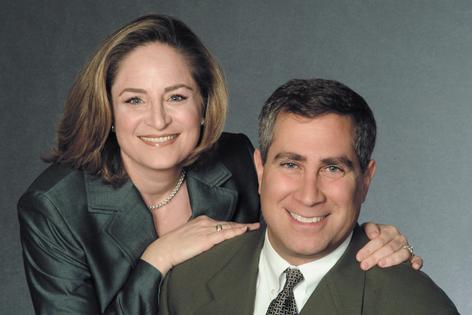Spouses disagree on how their trust is currently set up
Q: Enjoy reading your columns every week. I know you have addressed probate many times in your columns, and I understand the purpose of it.
My wife and I disagree on something. We do have a trust set up, and our house is in the trust. We also have several brokerage accounts, CDs, and checking accounts. They are set up either with the two of us as joint tenants (not in common) and/or one name as the principal owner with the other having signing rights (or whatever it’s called) and also as the primary beneficiary.
It is my understanding that when one of us dies, the surviving spouse simply has to provide a death certificate to “claim” the account. Those accounts do not have to go into probate — they just become the property of the surviving spouse. Then, new primary beneficiaries should be designated, presumably our daughters.
While there may be reasons to have everything in the name of the trust, my wife is on my case, since you always advocate for putting everything into a trust. I think we’re covered, as long as our various financial instruments are titled in a way that the surviving spouse gets custody of the accounts.
Please break the tie vote.
A: We’ve never been asked to break a tie vote between spouses before. And, if it isn’t giving away the ending, we don’t think you’ll like our answer.
First, it’s great that you’ve done more than a little estate planning. It’s clear you’ve gone through your assets and thought about what would happen to each when one or both of you die.
When it comes to your home, you’ve retitled that into the name of your trust. If something happens to one of you or both of you, the trust terms take over and would provide guidance as to who would get to control the home or the money from the sale of the home. The trust document should cover the many different situations or contingencies you might face.
The trust should provide for successor trustees after you and your wife have died. And, it should provide for successor beneficiaries should your current beneficiaries die. It should also name successor trustees for you and your wife, as well as successor trustees for those trustees.
Both circumstances and times change. Your trust document must provide the flexibility to change the terms over time, as your life or your heirs’ lives change, to make sure what you want done with your property after you die actually comes to pass. It’s important that your trust gives you the opportunity to designate someone to take care of your assets should you become incapacitated or unable to handle your financial affairs.
You might already have signed a power of attorney for health care and a separate power of attorney for financial matters. But some financial and other types of institutions won’t accept the power of attorney for financial matters if you’re alive without a legal declaration that you or your wife are no longer able to handle your affairs.
When it comes to a trust, the standards may differ, as the trust document can provide for the method of determining when the replacement trustee can take over the administration of the trust. So, the trust wins out on that count.
We say all this, however, without knowing the size of your estate. If you have a modest home, a few bank accounts with some cash, but you don’t have a sizable estate, you might be OK with what you have.
If, however, your home is valuable, you have several cars, artwork, jewelry plus a significant amount of cash, investments and other assets, then consider paying to have an attorney assist you in more sophisticated estate planning. The attorney can make sure to retitle all of your assets in the name of the trust. That way, upon your death, and perhaps later the death of your spouse, the transfer of assets goes smoothly and without glitches.
We can imagine a situation where you and your spouse are in a car accident and one of you dies instantly and the other dies a month or two later. You may not have titled all of your assets the way you wanted and the designation in your assets might not be sufficient for your heirs to avoid probate court.
Maybe we split the difference, depending on the size of your estate. If it’s sizable, your spouse is right. If it’s simpler, then you take the prize. You just don’t want to be wrong, and leave a big, fat mess for your heirs.
Thanks for your question.
========
(Ilyce Glink is the author of “100 Questions Every First-Time Home Buyer Should Ask” (4th Edition). She is also the CEO of Best Money Moves, a financial wellness technology company. Samuel J. Tamkin is a Chicago-based real estate attorney. Contact Ilyce and Sam through her website, ThinkGlink.com.)
©2025 Ilyce R. Glink and Samuel J. Tamkin. Distributed by Tribune Content Agency, LLC.

































Comments